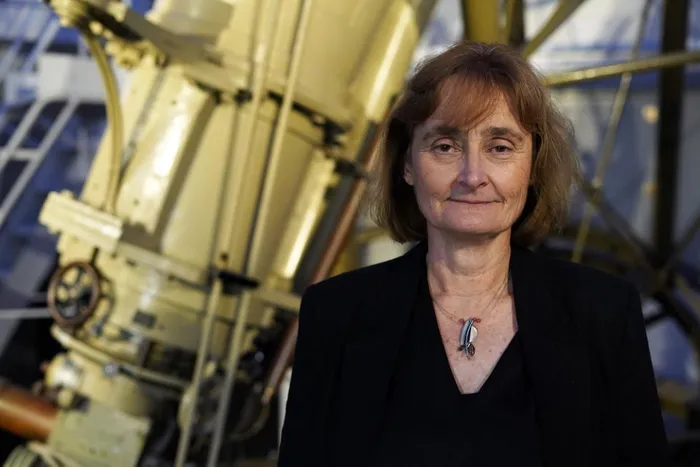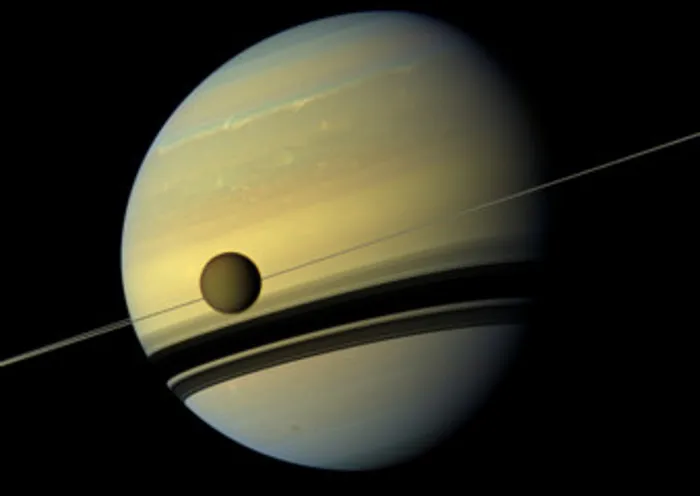
Professor Michele Dougherty has been appointed as the Royal astronomer, advising King Charles on what's going on in our galaxy.
Image: Supplied
A former student at the University of KwaZulu-Natal (UKZN), Professor Michele Dougherty, has been appointed Astronomer Royal in the UK, an honorary position advising King Charles on all things astronomical across our galaxy.
And what makes this appointment out of this world is that she's the first woman to take up the position since it was first created way back in 1675, taking over from Lord Martin Rees, who has held the post for the past 30 years.
In addition to that, she has eclipsed her male counterparts in the field to clinch the coveted role, having been one of only a handful of female students in a class of over 400 in her first year at university in Durban.

A view of Titan and Saturn from NASA's Cassini spacecraft released on August 31, 2012. Professor Dougherty was in charge of all the magnetometer instrumentation on board the craft.
Image: AFP
In a statement, UKZN said Dougherty had crafted her career over 35 years that included taking charge of the magnetometer instruments onboard the Cassini/Huygens mission to Saturn and the Jupiter Icy Moons Explorer of the European Space Agency.
"This complements Dougherty’s current positions as Executive Chair of UK Research and Innovation’s Science and Technology Facilities Council (STFC), President-elect of the Institute of Physics, and Professor of Space Physics at Imperial College London," it said.
In an interview with the "BBC", Dougherty said: "I want to engage with the public, excite them about what we do in astronomy, but also make it clear how important what we do is to the UK economy."
Born in Johannesburg, Dougherty and her sister were raised in Durban, where their late father, Professor Brian Dougherty, worked in the civil engineering departments at both the University of Natal and University of Durban-Westville.
Dougherty credits her father's fascination with astronomy for sparking her trajectory into the field, recalling making a telescope with him and her sister during her childhood, through which she saw the moons of Jupiter and Saturn.
So many years later, her work involved the deployment of unmanned spacecraft to these same gas giants, the largest in our solar system. These craft carry magnetometers she helped develop and lead.
"A career highlight was the Cassini spacecraft’s magnetometer, for which she was the principal investigator, overseeing 40 scientists, detecting signatures suggesting the presence of an atmosphere on one of its moons, Enceladus, confirmed on a subsequent flyby requested by Dougherty," UKZN said.
Excelling at mathematics and biology at Mitchell High School, and unsure of her career plans, Dougherty took her father’s advice and registered for a Bachelor of Science at the University of Natal, and was admitted despite lacking physics and chemistry high school subjects.
She persevered through the challenge of university-level science subjects with her father’s help, and went on to spend eight years at the university, completing her honours in physics and her PhD in applied mathematics in 1989.
“My education opened up possibilities that would not have opened up otherwise,” said Dougherty.
Dougherty left South Africa for a fellowship at the Max Planck Institute for Astronomy in Germany, after which she took up a post at Imperial College London.
After six months, thanks to a colleague who perceived Dougherty’s leadership ability, she became involved in preparing a magnetic field model for the Ulysses spacecraft’s Jupiter flyby, leading to a focus on magnetometers that has shaped her expertise since 1991.
"Dougherty has always ensured that any opportunity she accepted was offered because of her qualifications, and not simply her gender. Even in her appointment as the Astronomer Royal, Dougherty points to women who have shattered glass ceilings before her.
"She sees this role as an opportunity to promote the value of a career in the sciences and motivate women who can see someone like them occupying senior, scientific leadership roles," UKZN said.
Dougherty still visits South Africa regularly to see her sister and her family, and as part of work on projects like the Square Kilometre Array telescope near Carnarvon in the Northern Cape.
Related Topics: